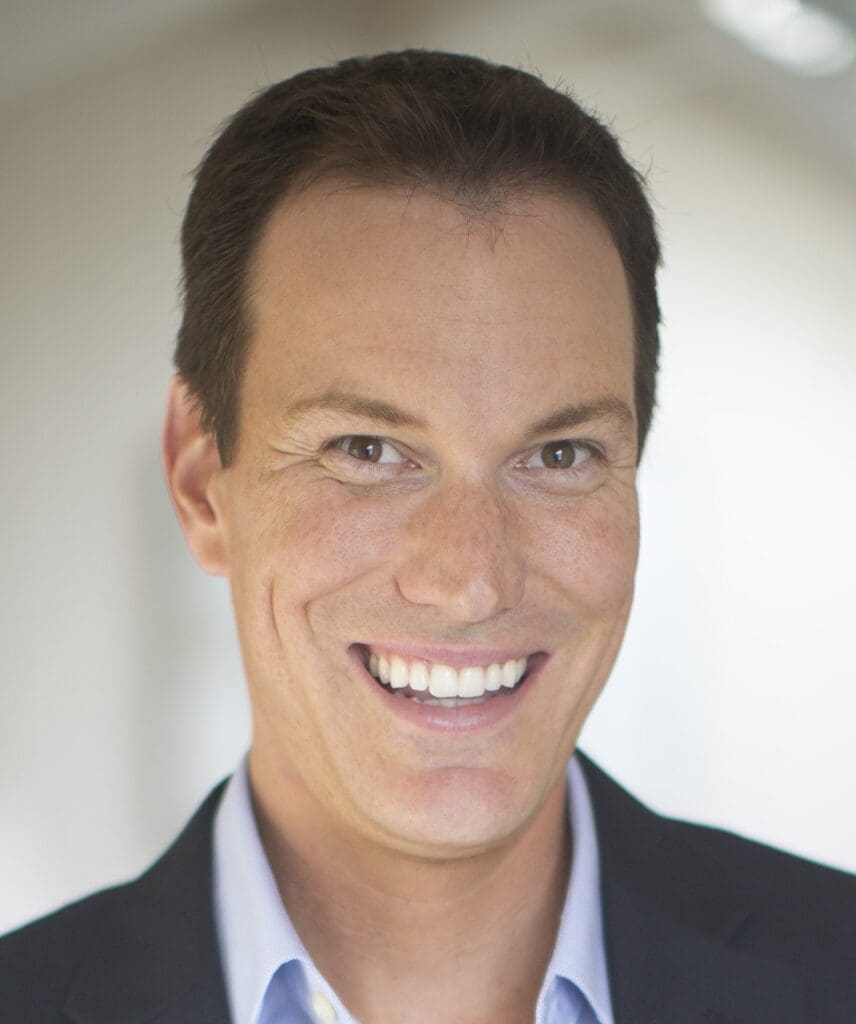
How often have you heard the formula that if you work harder, you’ll be more successful and that will equal happiness? Despite how commonplace this belief is, over a decade of research has shown that being positive first is the key to greater success at work.
“We have been taught this from our schools, from social media, from our families,” says Shawn Achor, author of “The Happiness Advantage.” “People thought that you could motivate people by showing them that if they were successful, they would be happier. And it did motivate people, until they realize that every time they have a success, their brain or their business changes the goalposts of what success looks like. So if happiness is on the other side of success, we never get there.”

Achor will cover how happiness is an advantage during the Opening Main Stage session at ELEVATE on Nov. 4 at 8 a.m.
“In my talk I describe how we can create mindset and behavior shifts that make our brains more adaptive and resilient, and how that happiness advantage can spread easily to those we work with, our clients and our families,” Achor says.
During his session, Achor will explain what positive psychology is, how much we can change our thinking, and practical applications and strategies for reaping the Happiness Advantage in the midst of change and challenge.
“Whether you’re looking for greater happiness or greater success, this research is for you,” Achor says. “In a challenging world, a positive mindset is one of the greatest competitive advantages in the modern economy, and happiness fuels our long-term potential.”
The Happiness Advantage
Achor explains that when the brain is more positive, we do not split our mental resources between worry and work. Instead, we have our full brain to focus on the task. Also, dopamine turns on all the learning centers in the brain. This is the ‘Happiness Advantage.’
Achor says that he has done this research in over 50 countries and with audiences as diverse as the NBA, impoverished schools, the Pentagon, waste management and the U.S. Marines.
“In short, every business outcome I’ve researched at companies from productivity to profitability to customer retention to safety to health care costs improve dramatically when the brain is positive,” Achor says.
On the opposite side of the spectrum, those with a negative mindset stop looking for opportunities because they are too busy scanning for threats.
“Research shows that a positive mindset increases our ability to pounce on opportunities when it arrives,” Achor says.
Achor adds that people like working with and for people who are positive and kind, so increasing our optimism also increases the desire for people to work with us.
Changing Your Mindset
Achor notes that seeing a problem doesn’t make you a pessimist. He explains that pessimism is the belief that our behavior doesn’t matter and that the negative is permanent and pervasive.
“Seeing a problem and assuming you can’t change it makes you a pessimist in that domain,” Achor says.
There is no great secret to how to change your mindset into a more positive one. Achor says mindsets shift when we continually make changes.
“We need to habitually scan for the positive as hard as the negative is pushed upon us by our phones and news,” he says.”
For instance, Achor had Marines at Camp Pendleton scan for gratitudes and start meetings with a positive example from their team instead of on the mistakes.
“At large hospital systems, we had teams identify one positive work routine change together, and by combining that with a personal positive habit yielded a 50% drop in burnout and they now have top 1% patient safety in the nation,” Achor says.
At MetLife, it was found that the top 10% of optimists outsold the other 90% combined. Achor says now they hire based on optimism as well.
Want to learn more about to tap into the Happiness Advantage? Register for ELEVATE and we’ll see you in Charlotte, North Carolina!

